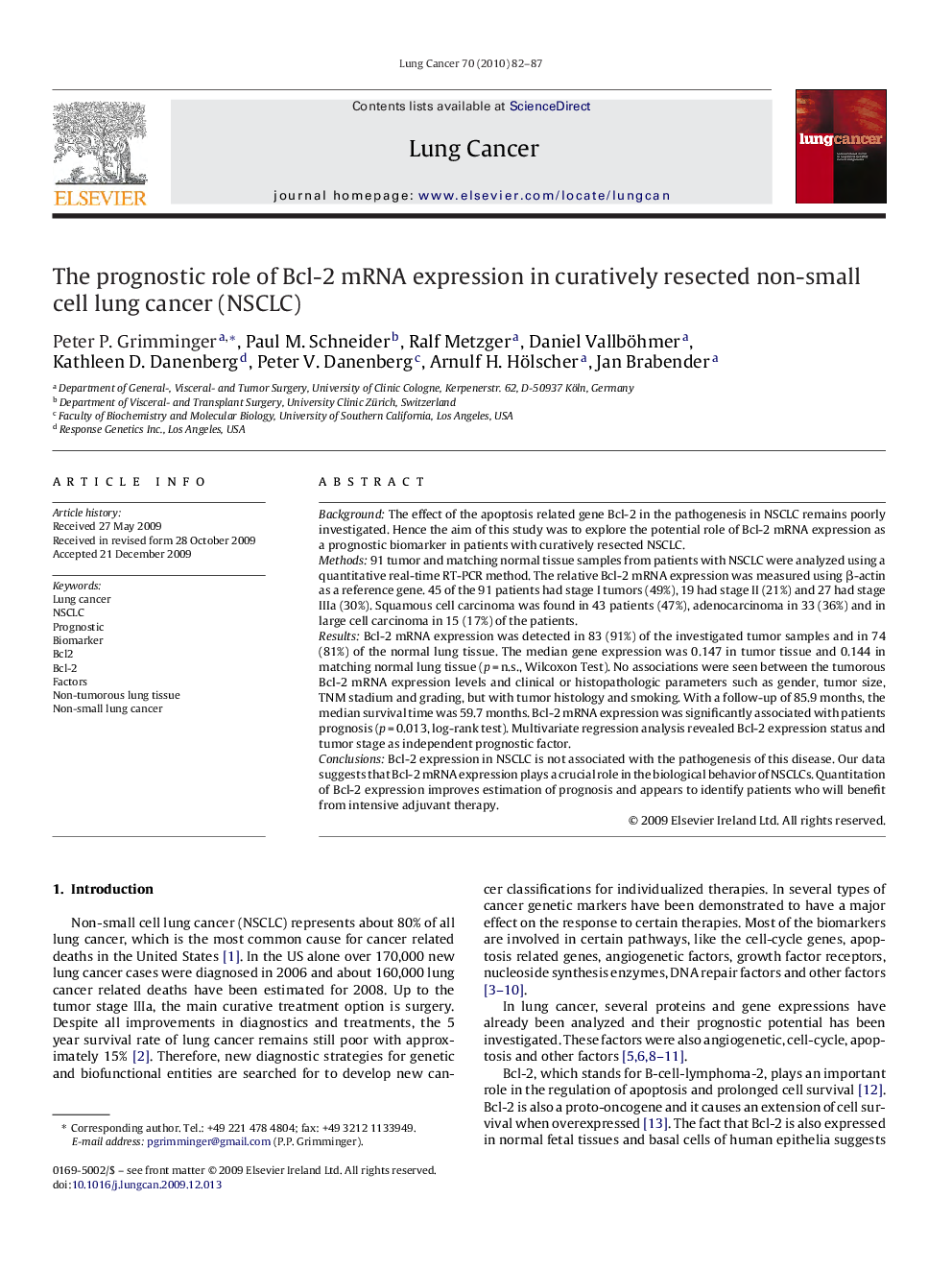| Article ID | Journal | Published Year | Pages | File Type |
|---|---|---|---|---|
| 2142517 | Lung Cancer | 2010 | 6 Pages |
BackgroundThe effect of the apoptosis related gene Bcl-2 in the pathogenesis in NSCLC remains poorly investigated. Hence the aim of this study was to explore the potential role of Bcl-2 mRNA expression as a prognostic biomarker in patients with curatively resected NSCLC.Methods91 tumor and matching normal tissue samples from patients with NSCLC were analyzed using a quantitative real-time RT-PCR method. The relative Bcl-2 mRNA expression was measured using β-actin as a reference gene. 45 of the 91 patients had stage I tumors (49%), 19 had stage II (21%) and 27 had stage IIIa (30%). Squamous cell carcinoma was found in 43 patients (47%), adenocarcinoma in 33 (36%) and in large cell carcinoma in 15 (17%) of the patients.ResultsBcl-2 mRNA expression was detected in 83 (91%) of the investigated tumor samples and in 74 (81%) of the normal lung tissue. The median gene expression was 0.147 in tumor tissue and 0.144 in matching normal lung tissue (p = n.s., Wilcoxon Test). No associations were seen between the tumorous Bcl-2 mRNA expression levels and clinical or histopathologic parameters such as gender, tumor size, TNM stadium and grading, but with tumor histology and smoking. With a follow-up of 85.9 months, the median survival time was 59.7 months. Bcl-2 mRNA expression was significantly associated with patients prognosis (p = 0.013, log-rank test). Multivariate regression analysis revealed Bcl-2 expression status and tumor stage as independent prognostic factor.ConclusionsBcl-2 expression in NSCLC is not associated with the pathogenesis of this disease. Our data suggests that Bcl-2 mRNA expression plays a crucial role in the biological behavior of NSCLCs. Quantitation of Bcl-2 expression improves estimation of prognosis and appears to identify patients who will benefit from intensive adjuvant therapy.
